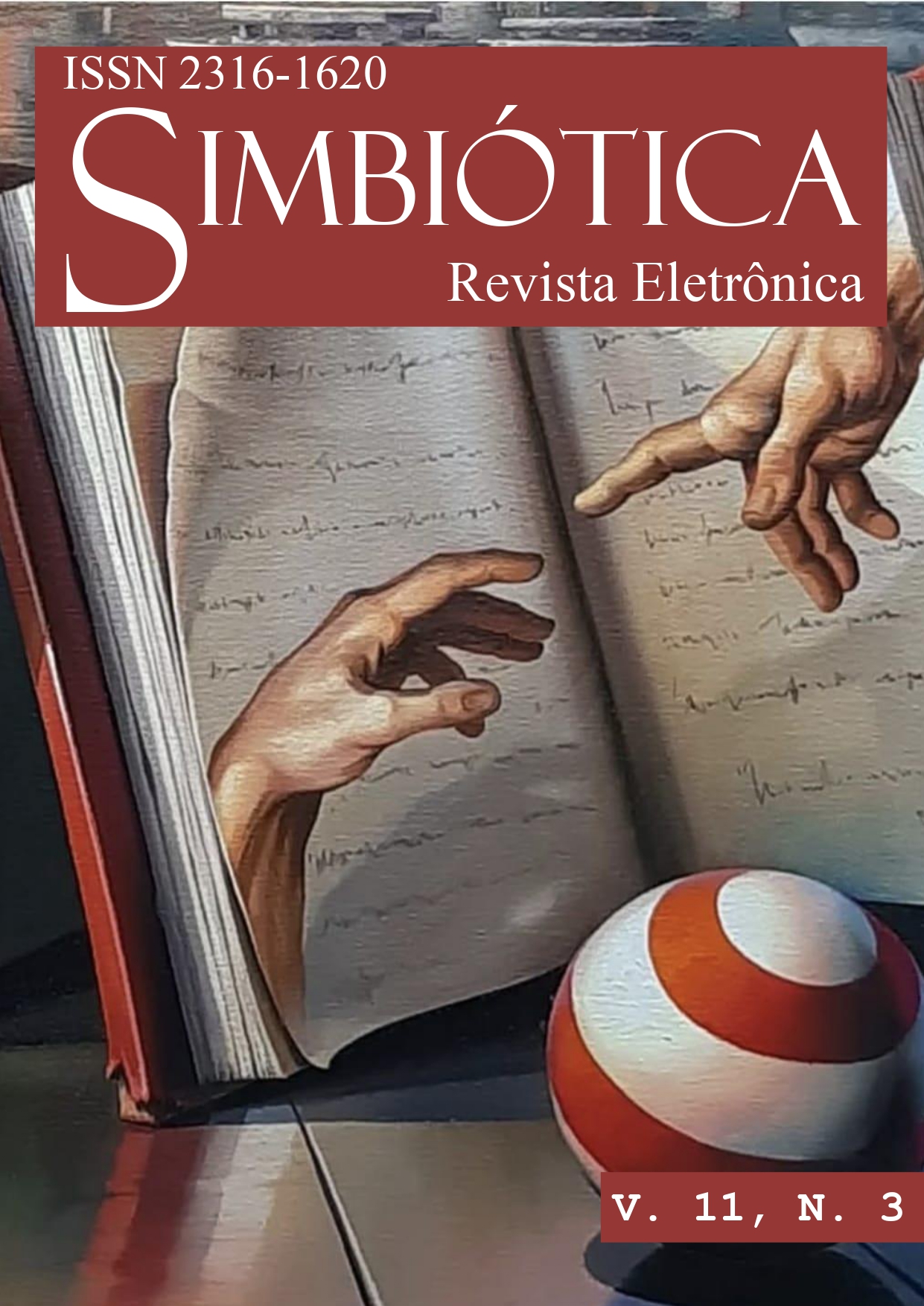Climate Change
suggestions for the social science research agenda in Mozambique
DOI:
https://doi.org/10.47456/simbitica.v11i3.45013Keywords:
climate change, denaturalization, social sciences, MozambiqueAbstract
The article proposes to analyse the situation of the theme of climate change as an object of study of the social sciences in Mozambique, followed by a proposal for a research agenda, considering that this country is one of the most vulnerable in the world to climate catastrophes. The work was prepared from a bibliometric review on the Scopus platform and through the search for relevant information on the subject in the official pages of the ten main universities in Mozambique. We argue that climate change has been marginalized as an object of study in the social sciences, which contrasts with the visibility of the issue in government institutions and intergovernmental panels. Finally, we propose environmental constructionism and decolonial ecology as tools that can mutually illuminate each other in the construction of a research agenda for the social sciences in Mozambique, providing a broad theoretical basis for addressing critical issues related to climate change and coloniality.
Downloads
References
Acselrad, Henri. (2022). “O social nas mudanças climáticas”. Liincem Revista, v. 18, n. 1, pp. 1-19. [Consult. 15-07-2023]. Disponível em https://revista.ibict.br/liinc/article/view/5930/5585
Almeida, Jalcione. (2019). “A sociologia e as mudanças climáticas. Sociologias”, Sociologias, v. 21, n. 51, pp. 9-17. [Consult. 17-07-2023]. Disponível em https://www.scielo.br/j/soc/a/Tw4DhYZ8KkCX9tHptn6xzwz/?format=pdf&lang=pt
Almeida, Jalcione; Premebida, Adriano. (2014). “Histórico, relevância e explorações ontológicas da questão ambiental”. Sociologias, v. 16, n. 35, pp. 14-33. [Consult,20/08/2023]. Disponível em https://www.scielo.br/j/soc/a/9b58nJCGjGQSYXGzTCc7QdC/?format=pdf&lang=pt
Arndt, Channing; Strzepeck, Kenneth; Tarp, Finn; Thurlow, James; Fant, Charles. (2011). “Adapting to climate change: An integrated biophysical and economic assessment for Mozambique”. Sustainability Science, v. 6, n. 1, pp. 7-20. [Consult. 15-04-2024]. Disponível em https://link.springer.com/article/10.1007/s11625-010-0118-9
Azagaia. (2013). “Cães de Raça”. Maputo. [Consult. 15-08-2023]. Disponível https://www.youtube.com/watch?v=U3cvTG1QYrA
Boehm, Sophie; Schumer, Clea. (2023). “10 conclusões do Relatório do IPCC sobre Mudanças Climáticas de 2023”. [Consult. 15/08/2023]. Disponível em https://www.wribrasil.org.br/noticias/10-conclusoes-mudancas-climaticas-de-2023
Bond, Patrick. (2019). “Blue Economy threats, contradictions and resistances seen from South Africa”. Journal of Political Ecology, v. 26, n. 1, pp. 341-362. [Consult. 15-04-2024]. Disponível em https://doi.org/10.2458/v26i1.23504
Buchir, Luis; Detzel, Daniel. (2023). “The role of the governance on the climate vulnerability index definition in Mozambique”. GeoJournal, v. 88, n. 2, pp 1687-1702. [Consult. 15/04/2024]. Disponível em https://doi.org/10.1007/s10708-022-10711-7
Buttel, Frederick. (1992). “A Sociologia e o Meio Ambiente: Um Caminho Tortuoso Rumo À Ecologia Humana”. Perspectiva, v. 15, pp. 69-94. [Consult. 20-08-2023]. Disponível em https://periodicos.fclar.unesp.br/perspectivas/article/view/1961
Caux, Hélène. (2022). “Personas desplazadas se unen a los esfuerzos de adaptación al cambio climático en Mozambique”. ACNUR. [Consult. 10-04-2024]. Disponível em https://www.acnur.org/noticias/stories/personas-desplazadas-se-unen-los-esfuerzos-de-adaptacion-al-cambio-climatico-en
Chilaúle, José; Natacha, Bruna; Monjane, Boaventura; Do Amaral, Giverage; Da Amélia, Elton; Bento, Rafael; Walker, Patricia; Perkins, Patricia. (2023). “Extreme climatic events and Climate Change policies: A Call for Climate Justice Action in Mozambique”, in Crawford, N., Kavya, M., Mikulewicz, M. (eds). Climate Justice in the Majority World: Vulnerability, Resistance, and Diverse Knowledges. New York, Routledge, pp. 42-60.
Conjo, Manuel; Chichango, David; De Jesus, Octavio. (2021). “O Papel Da Mídia Na Divulgação De Informação Sobre Mudanças Climáticas Em Moçambique”. Revista Ibero- Americana de Humanidades, Ciências e Educação- REASE, v. 7, n. 11, pp. 1635-1654. [Consul. 20-10-2023]. Disponível em https://doi.org/10.51891/rease.v7i11.3237
Durkheim, Ėmile. ([1895] 2004). As Regras do Método Sociológico. Lisboa, Editorial Presença.
Eckstei, David; Schäfer, Valter. (2021). Global Climate Risk Index 2021.” Berlin: Germanwatch e.V. [Consult. 20/11/2023]. Disponível em https://www.germanwatch.org/en/19777
Eyeang, Eugénie. (2020). “Las educaciones africanas a lo largo de los siglos: Una navegación entre varios sistemas educativos”. Aula, v. 26, pp. 199-215. [Consult. 29-04-2014]. Disponível em https://doi.org/10.14201/aula202026199215
FCSF. (2023). “Caderno de Resumos: “I Congresso de Pensamento e Prática Social Sociedades Diferenciadas, Instituições e Tolerância”. Maputo. Disponível em https://cpps.co.mz/wp-content/uploads/2023/06/BOOK-OF-ABSTRACTS_BOOK-OF-ABSTRACTS-1
Ferdinand, Malcom. (2022). Uma Ecologia Decolonial: Pensar a partir do mundo caribenho. São Paulo: Ubu Editora.
Fernandes, Carlos. (2011). “Dinâmicas de Pesquisa em Ciências Sociais no Moçambique Pós – Independente: O Caso do Centro de Estudos Africanos, 1975-1990”. (Tese de Doutorado em Estudos Étnicos e Africanos). Faculdade de Filosofia e Ciências Humanas, Universidade Federal da Bahia. Salvador.
Fleury, Lorena; Almeida; Jalcione; Premebiba, Adriano. (2024). “O ambiente como questão sociológica: conflitos ambientais em perspectiva. Sociologias”. Sociologias, v. 16, n. 35, pp. 34-82. [Consult. 12-11-2023]. Disponível em https://doi.org/10.1590/S1517-45222014000100003
Fulane-Tambe, Telma; Ferreira, Fernando., Silveira, Aline. (2019). Educação Superior em Moçambique: entre o estado e a astúcia do capital. Políticas Educacionais, v. 13, n. 33, pp. 1-22 [Consult. 02-10-2024]. Disponível em http://10.5380/jpe.v13i0.67569
Hanningan, John. (2009). A sociologia ambiental: a formação de uma perspectiva ambiental. Lisboa, Instituto Piaget.
IPCC. (2022). “Sexto relatório de Avaliação do IPCC: Impactos, opções de adaptação e áreas de investimento para uma África Austral resiliente às mudanças climáticas”, pp. 1-18, [Consult.20/10/2023]. Disponível em https://cdkn.org/sites/default/files/202209/IPCC%20Factsheet_Southern%20Africa%20%28Portuguese%29.pdf
IPCC. (2023). Mudança Do Clima 2023: Relatório Síntese. Suíça, WNO, UNEP. 2023.
Lander, Edgardo. (2019). Crisis civilizatoria: experiencias de los Gobiernos progresistas y debates en la izquierda latinoamericana. Alemania: CALAS; Universidad de Guadalajara; FLACSO-Ecuador.
Lang, Miriam. (2011). “Crisis civilizatoria y desafíos para las izquierdas”, in Lang, Miriam.; Mokrani, Dunia (eds.), Más allá del desarrollo. Quito, Abya-Yala-Fundación Rosa Luxemburgo, pp. 7-18.
Lavo, Lucas; Costa, Pedro. (2023). “Late Holocene evolution of a coastal barrier system at Bilene, Mozambique”. Earth Surface Processes and Landforms, v. 49, n. 2, pp. 821-836. [Consult. 15-04-2024]. Disponível em https://doi.org/10.1002/esp.5742
Martins, Rafael; Ferreira, Leila. (2009). “Assessing the research on human dimensions of global environmental change in Latin America”. Teoria & Pesquisa, v. 18, pp. 31-52.
Matos, José; Ferreira, Filipa; Mendes, Diogo; Matos, José. (2023). “Evaluating Compound Flooding Risks in Coastal Cities under Climate Change-The Maputo Case Study, in Mozambique”. Sustainability, v. 15, n. 19, pp. 14497 [Consult. 15-04-2024]. Disponível em https://doi.org/10.3390/su151914497
Matos, Amemarlita; Barraza, Laura; Ruiz-Mallén, Isabel. (2021). “Linking conservation, community knowledge, and adaptation to extreme climatic events: A case study in Gorongosa National Park, Mozambique”. Sustainability, v. 13, n. 11, pp. 6478 [Consult. 15-04-2024]. Disponível em https://doi.org/10.3390/su13116478
Meneses, Maria. (2016). “As ciências sociais no contexto do Ensino Superior em Moçambique: dilemas e possibilidades de descolonização”. Perspectiva, v. 34, n. 2, pp. 338-364. [Consult. 10-11-2023]. Disponível em https://doi.org/10.5007/2175-795X.2016v34n2p338
Molua, Ernest; Mendelsohn, Robert; Akamin, Ajapnwa. (2020). “Economic vulnerability to tropical storms on the southeastern coast of Africa”. Jamba: Journal of Disaster Risk Studies, v. 12, n. 1, pp. 676-680. [Consult. 10-11-2023]. Disponível em https://scielo.org.za/pdf/jamba/v12n1/11.pdf
Moreano, Melissa; Lang, Miriam; Ruales, Gabriela. (2021). Perspectivas de justicia climática desde los feminismos latinoamericanos y otros sures. Quito, Fundación Rosa Luxemburgo.
Muhale, Izldo. (2020). “O Papel da Produção Científica na Institucionalização de Políticas Ambientais em Moçambique: 1980-2014”. Campinas, UNICAMP.
Munang, Richard; Nkem, Johnson; Han, Zhen. (2013). “Using data digitalization to inform climate change adaptation policy: Informing the future using the present”. Weather and Climate Extremes, v 1, pp. 17-18. [Consult. 15-04-2024]. Disponível em https://doi.org/10.1016/j.wace.2013.07.001
Pereira, Carolina; Van Aalst, Maarten; Blanford, Justine; Guigma, Kiswendsida; Pinto, Izidine; Maure, Genito; Marrufo, Tatiana. (2023). “Heatwaves in Mozambique 1983–2016: Characteristics, trends and city-level summaries using high-resolution CHIRTS-daily”. Weather and Climate Extremes, v. 40, pp. 100565. [Consult. 15-04-2024]. Disponível em https://doi.org/10.1016/j.wace.2023.100565
Ribeiro, Edcarlos. (2021). Estudos moçambicanos e a transição ao socialismo: contribuições das ciências humanas para um processo de transformação social. Revista da ABPN, v. 13, n. 36, pp. 105-125 [Consult. 02-10-2024]. Disponível em https://abpnrevista.org.br/site/article/view/1227
Roca, Oliver. (2016). “La invención del desarrollo. Una mirada crítica al desarrollo en África”. Fòrum de Recerca. v 21, pp. 73-100. [Consult. 15-04-2024]. Disponível em http://dx.doi.org/10.6035/ForumRecerca.2016.21.5
Rui-Mucova, Serafino; Azeiteiro, Ulisses; García, Antonio; Leal, Walter; Verde, Mario. (2021). “Addressing Rural Community’s Risk Perceptions, Vulnerability, and Adaptation Strategies to Climate Change in Mozambique, Africa”, in Leal Filho, W., Azeiteiro, U., Setti, A. F. (eds.). Sustainability in Natural Resources Management and Land Planning. Portugal: World Sustainability Series, Springer, pp. 283-310.
Santos, Michael; Ferreira, Ana; Lanzinha, João. (2023). “The role of the governance on the climate vulnerability index definition in Mozambique”. GeoJournal, v 88, n 2, pp. 1687-1702. [Consult. 15-04-2024]. Disponível em https://doi.org/10.1007/s10708-022-10711-7
Salmi, Frederico; Fleury, Lorena. (2022). “Mudanças Climáticas e Ciências Sociais: análise bibliométrica do campo (2011-2021)”. BIB - Revista Brasileira de informação bibliográfica em Ciências Sociais, v. 1. n. 97, pp. 1-19. [Consult. 15-04-2024]. Disponível em https://bibanpocs.emnuvens.com.br/revista/article/view/574
Stal, Marc. (2011). “Flooding and Relocation: The Zambezi River Valley in Mozambique”. International Migration, v. 49, n. s1, pp. 125-145. [Consult. 15-04-2024]. Disponível em https://doi.org/10.1111/j.1468-2435.2010.00667.x
Stengers, Isabelle. (2015). No tempo das catástrofes: resistir à barbárie que se aproxima. São Paulo, Cosac Naify.
Spector, Malcolm; Kitsuse, John (1973). “Social Problems: A Re-Formulation”. Social Problems, v. 21, n. 2, pp. 145-159. [Consult. 12-12-2023]. Disponível em https://doi.org/10.2307/799536
Veltrone, Allan. (2017). “As ciências sociais e as Mudanças Climáticas. Ateliê Geográfico - Goiânia-GO, v. 11, n. 3, 134-154. [Consult. 12/12/2023]. Disponível em https://revistas.ufg.br/atelie/article/view/34741
Yordanov, V; Brovelli, M.A; Carrion, D; Barazzetti, L; Francisco, L; Comia, H; Caravela, M. (2020). “Capacity building for disaster management in Mozambique through teaching public participatory gis and spatial data infrastructure”. International Archives of the Photogrammetry, Remote Sensing and Spatial Information Sciences – ISPRS, v. 54, pp. 151–158. [Consult. 15-04-2024]. Disponível em https://doi.org/10.5194/isprs-archives-XLIV-3-W1-2020-151-2020
Zanoni, Magda; Raynaut, Claude. (2015). “Meio ambiente e desenvolvimento: imperativos para a pesquisa e a formação. Reflexões em torno do doutorado da UFPR”. Desenvolvimento e Meio Ambiente - DeMA, v. 33, pp. 09-30. [Consult. 12-12-2023]. Disponível em https://revistas.ufpr.br/made/article/download/41086/25133
Downloads
Published
How to Cite
Issue
Section
License
Copyright (c) 2024 Carlos João Batista Manjate, Edison Auqui-Calle

This work is licensed under a Creative Commons Attribution-NonCommercial 4.0 International License.
Autores que publicam nesta revista concordam com os seguintes termos:
a. Autores mantém os direitos autorais e concedem à revista o direito de primeira publicação, com o trabalho simultaneamente licenciado sob a Creative Commons - Atribuição-NãoComercial 4.0 Internacional.
b. Compartilhar - copiar e distribuir o material em qualquer meio ou formato.
Adaptar - remix, transformar e construir sobre o material para qualquer finalidade, inclusive comercial.
c. Autores têm autorização para assumir contratos adicionais separadamente, para distribuição não-exclusiva da versão do trabalho publicada nesta revista (ex.: publicar em repositório institucional ou como capítulo de livro), com reconhecimento de autoria e publicação inicial nesta revista.
d. Autores têm permissão e são estimulados a publicar e distribuir seu trabalho online (ex.: em repositórios institucionais ou na sua página pessoal) a qualquer ponto antes ou durante o processo editorial, já que isso pode gerar alterações produtivas, bem como aumentar o impacto e a citação do trabalho publicado (Veja O Efeito do Acesso Livre).
Authors who publish in this journal agree to the following terms:
a. Authors retain the copyright and grant the magazine the right of first publication, with work simultaneously licensed under the CCreative Commons - Atribuição-NãoComercial 4.0 Internacional.
b. Share - copy and distribute the material in any medium or format.
Adapt - remix, transform and build on the material for any purpose, including commercial.
c. Authors are authorized to take additional contracts separately, for non-exclusive distribution of the version of the work published in this journal (eg, publish in institutional repository or as a book chapter), with acknowledgment of authorship and initial publication in this journal.
d. Authors are allowed and encouraged to publish and distribute their work online (eg.: in institutional repositories or on their personal page) at any point before or during the editorial process, as this can generate productive changes as well as increase the impact and the citation of the published work (See The Effect of Free Access).














